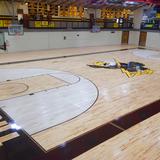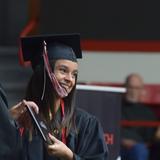- North Central Kansas Technical College, an institution of Higher Education, provides life-long educational opportunities to a diverse population leading to productive lives for the benefit of a global society. We are dedicated to providing a curriculum in a supportive learning environment designed to promote a personalized educational experience which will enhance an individual's opportunity to develop to his or her full potential.
School Highlights
North Central Kansas Technical College serves 1,387 students (32% of students are full-time).
The college's student:teacher ratio of 15:1 is lower than the state community college average of 16:1.
Minority enrollment is 10% of the student body (majority Hispanic), which is less than the state average of 40%.
Quick Stats (2025)
- Enrollment: 1,387 students
- In-state tuition: $5,098
- Out-state tuition: $5,098
- Student:teacher ratio: 15:1
- Minority enrollment: 10%
- Source: Integrated Postsecondary Education Data System (IPEDS)
Top Rankings
North Central Kansas Technical College ranks among the top 20% of public schools in Kansas for:
Category
Attribute
Completion Rates
School Overview
The teacher population of 92 teachers has stayed relatively flat over five years.
North Central Kansas Technical College
(KS) Community College Avg.
Carnegie Classification
Associate's Colleges: High Career & Technical-Mixed Traditional/Nontraditional
Associate's Colleges: Mixed Transfer/Career & Technical-High Nontraditional
Institution Level
At least 2 but less than 4 years
At least 2 but less than 4 years
Institution Control
Public
Public
Total Faculty
92 staff
170 staff
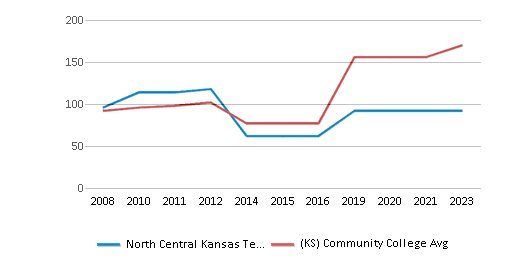
School Calendar
Student Body
The student population of North Central Kansas Technical College has grown by 51% over five years.
The student:teacher ratio of 15:1 has increased from 9:1 over five years.
The North Central Kansas Technical College diversity score of 0.19 is less than the state average of 0.60. The school's diversity has declined by 6% over five years.
Total Enrollment
1,387 students
1,908 students
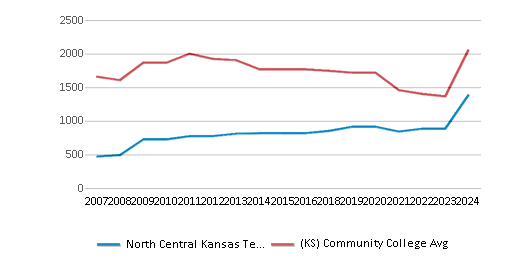
Student : Teacher Ratio
15:1
16:1
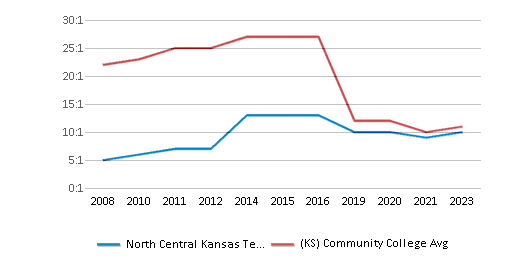
# Full-Time Students
439 students
606 students
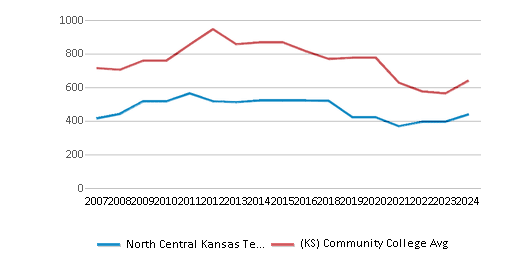
# Part-Time Students
948 students
1,451 students
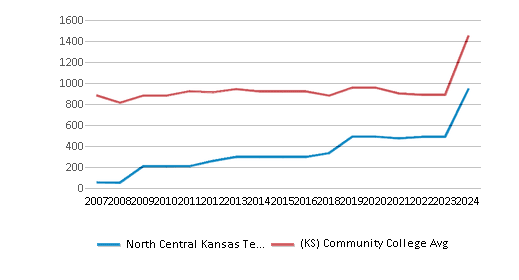
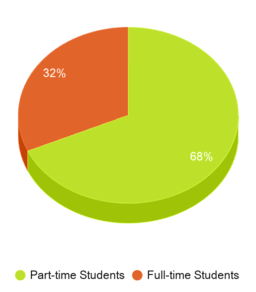
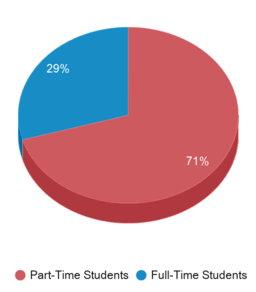
# Enrollment Undergraduate
138 students
231 students
# Full-Time Undergraduate Students
439 students
606 students
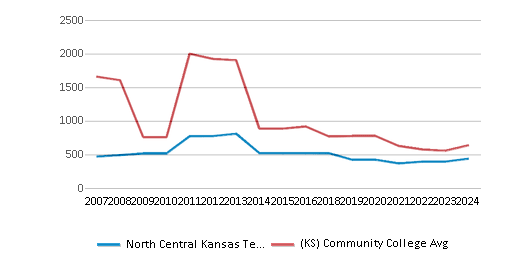
# Full-Time Graduate Students
n/a
11 students
# Part-Time Undergraduate Students
948 students
1,424 students
# Part-Time Graduate Students
n/a
5 students
Total Dormitory Capacity
112 students
342 students
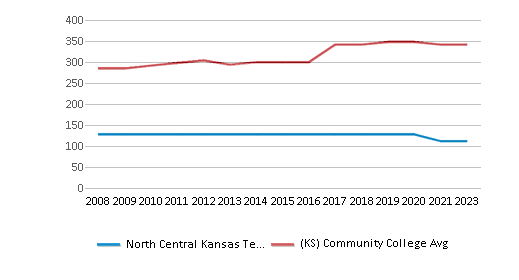
% American Indian/Alaskan
n/a
1%
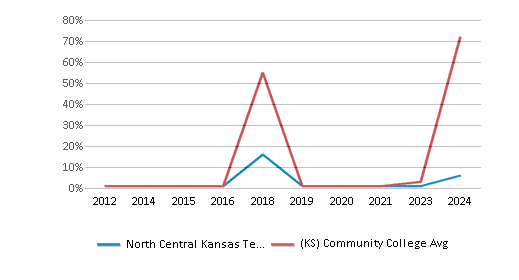
% Asian
1%
3%
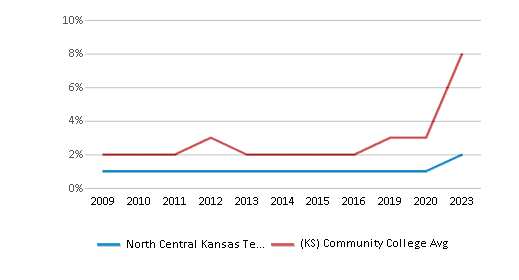
% Hispanic
5%
15%
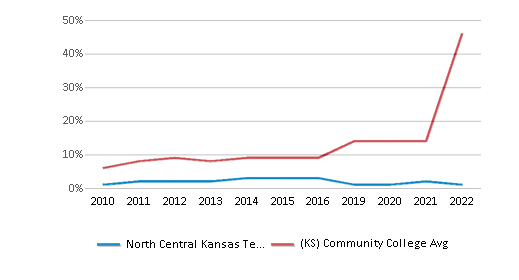
% Black
1%
8%
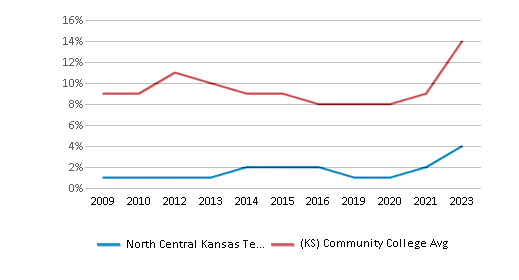
% White
90%
60%
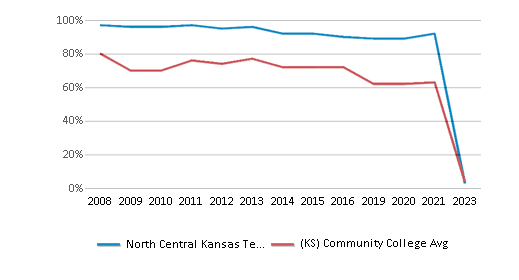
% Hawaiian
n/a
1%
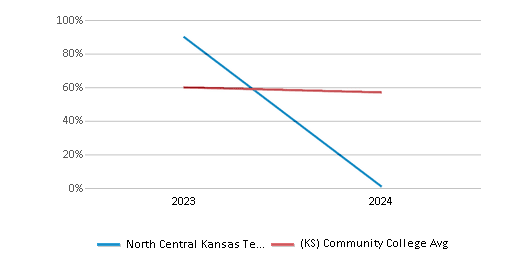
% Two or more races
3%
4%
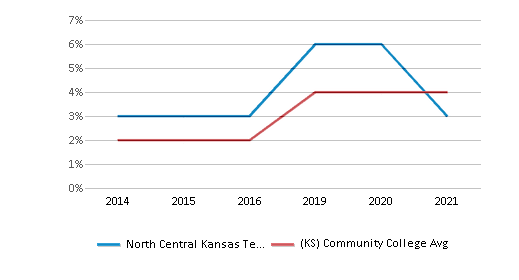
% Non Resident races
n/a
2%
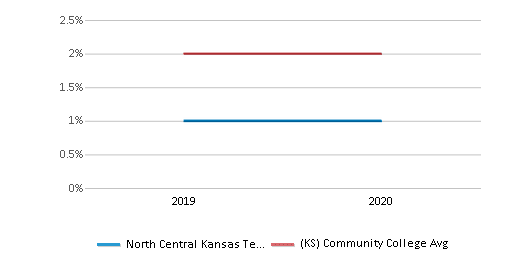
% Unknown races
n/a
6%
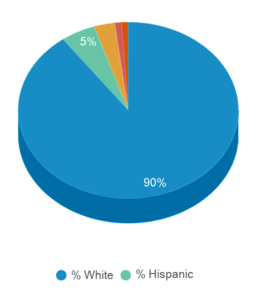
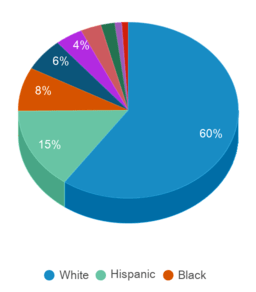
Diversity Score
0.19
0.60
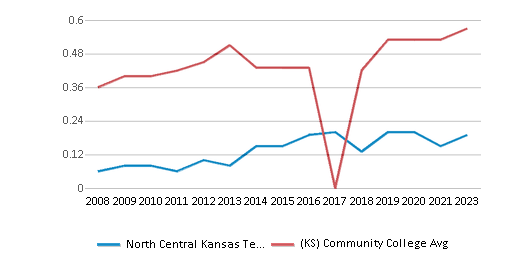
College Completion Rate (Students who graduate in less than 4 years)
0.7095%
0.4101%
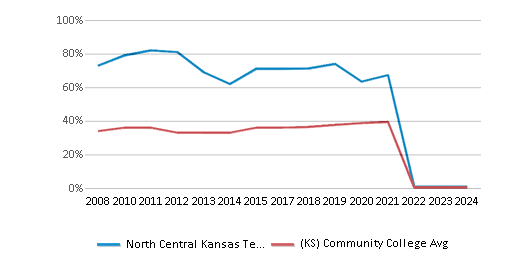
College Completion Rate (Students who graduate in 4 years or more than 4 years)
n/a
0.3056%
Average Graduate Earnings (10 Years)
$38,400
$34,000
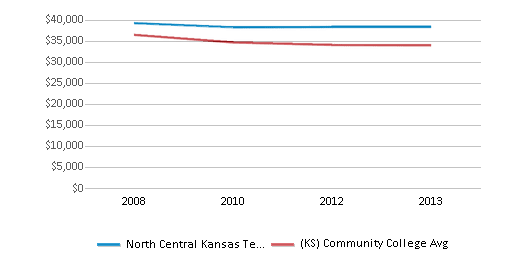
Tuition and Acceptance Rate
The public in-state tuition of $5,098 is more than the state average of $3,402. The in-state tuition has declined by 30% over four years.
The public out-state tuition of $5,098 is more than the state average of $4,296. The out-state tuition has declined by 30% over four years.
In-State Tuition Fees
$5,098
$3,402
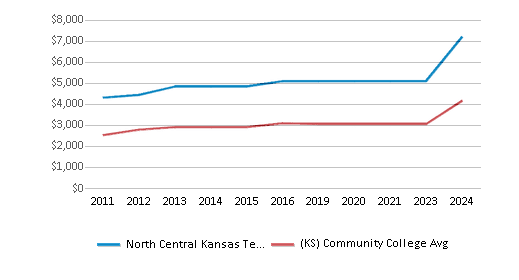
Out-State Tuition Fees
$5,098
$4,296
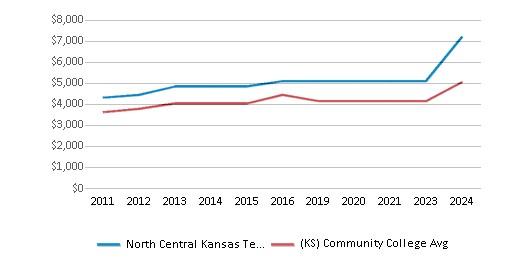
% Students Receiving Some Financial Aid
90%
90%
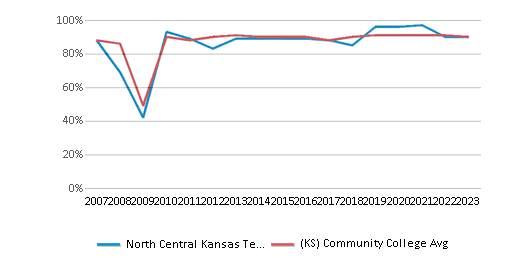
Median Debt for Graduates
$15,087
$8,892
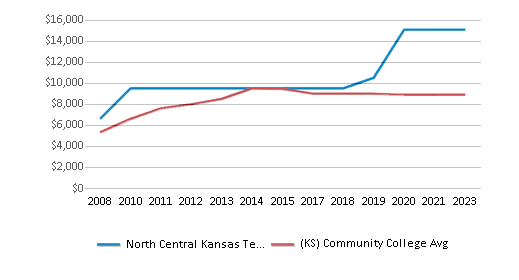
Median Debt for Dropouts
$7,999
$5,467
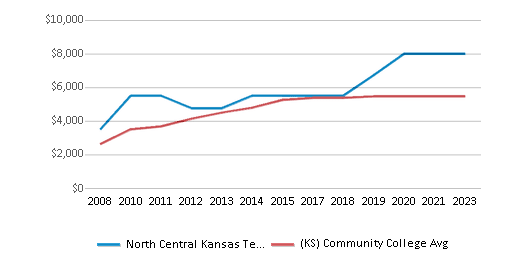
Acceptance Rate
n/a
100%
ACT Composite
n/a
21
Source: 2024 (or latest year available) Integrated Postsecondary Education Data System (IPEDS)
School Notes
- NCKTC was established in Beloit in 1964 with a second campus established in Hays in 1975. NCKTC is widely recognized as a leader in technical education. We offer more than 14 one year certificate programs and 9 Associate of Applied Science Degree programs. We pride ourselves in not only providing cutting edge training for many career fields, but also training the leaders in those fields. NCK Technical College works in cooperation with several other educational institutions such as Cloud County Community College, Barton County Community College and Fort Hays State University towards the completion of degrees and furthering the educational opportunities of the students. At NCK Technical College we offer 19 highly skilled areas of specialization. They each rely on actual on-the-job experience enhanced with theory courses, so that you will learn a skill the right way in the shortest practical amount of time. We can prepare you in your area of interest in 9 to 20 months, so you're ready to begin a rewarding career. In an average year, we place over 90 percent of our graduates in jobs where they can put their skills to use. NCKTC was established in Beloit in 1964 with a second campus established in Hays in 1975. NCKTC is widely recognized as a leader in technical education. We offer more than 14 one year certificate programs and 9 Associate of Applied Science Degree programs. We pride ourselves in not only providing cutting edge training for many career fields, but also training the leaders in those fields.
Frequently Asked Questions
How much does North Central Kansas Technical College cost?
North Central Kansas Technical College's tuition is approximately $5,098 for In-State students and $5,098 for Out-State students.
What is North Central Kansas Technical College's ranking?
North Central Kansas Technical College ranks among the top 20% of community college in Kansas for: Highest completion rates.
Recent Articles

Obtaining Your Bachelor's Degree at a Community College
Explore the evolving landscape of community colleges offering bachelor's degrees, addressing affordability, accessibility, and workforce needs.

A to Z of Community College Certificates and Courses
From business and healthcare to technology and skilled trades, the article showcases the breadth of options available to students seeking to enhance their knowledge, develop new skills, or pursue career advancement.

What is a Community College?
This comprehensive guide explains what a community college is, its history, and its role in higher education. It covers the types of programs offered, differences from four-year colleges, benefits of attending, and important considerations for prospective students, providing valuable insights for those exploring educational options.

